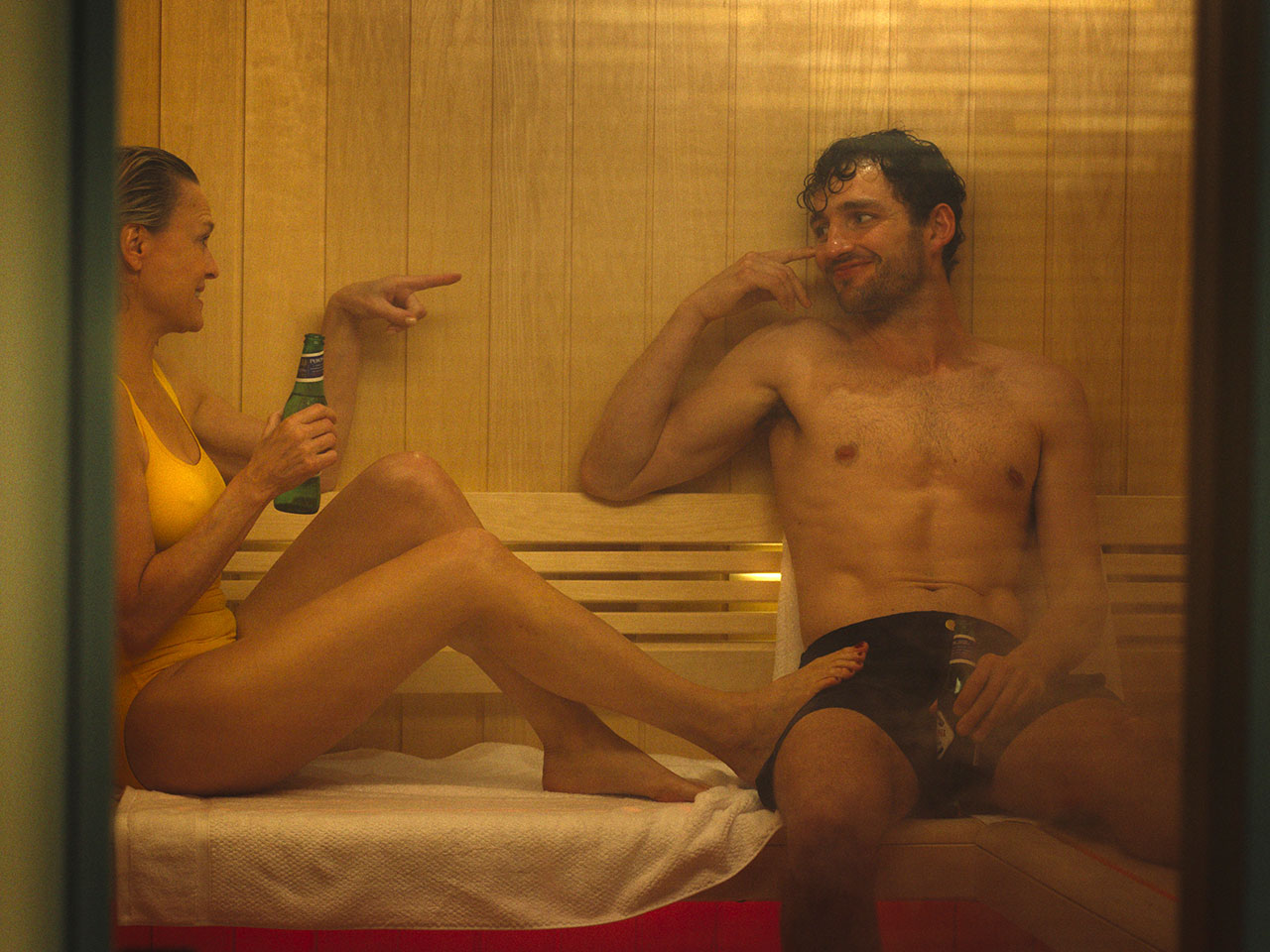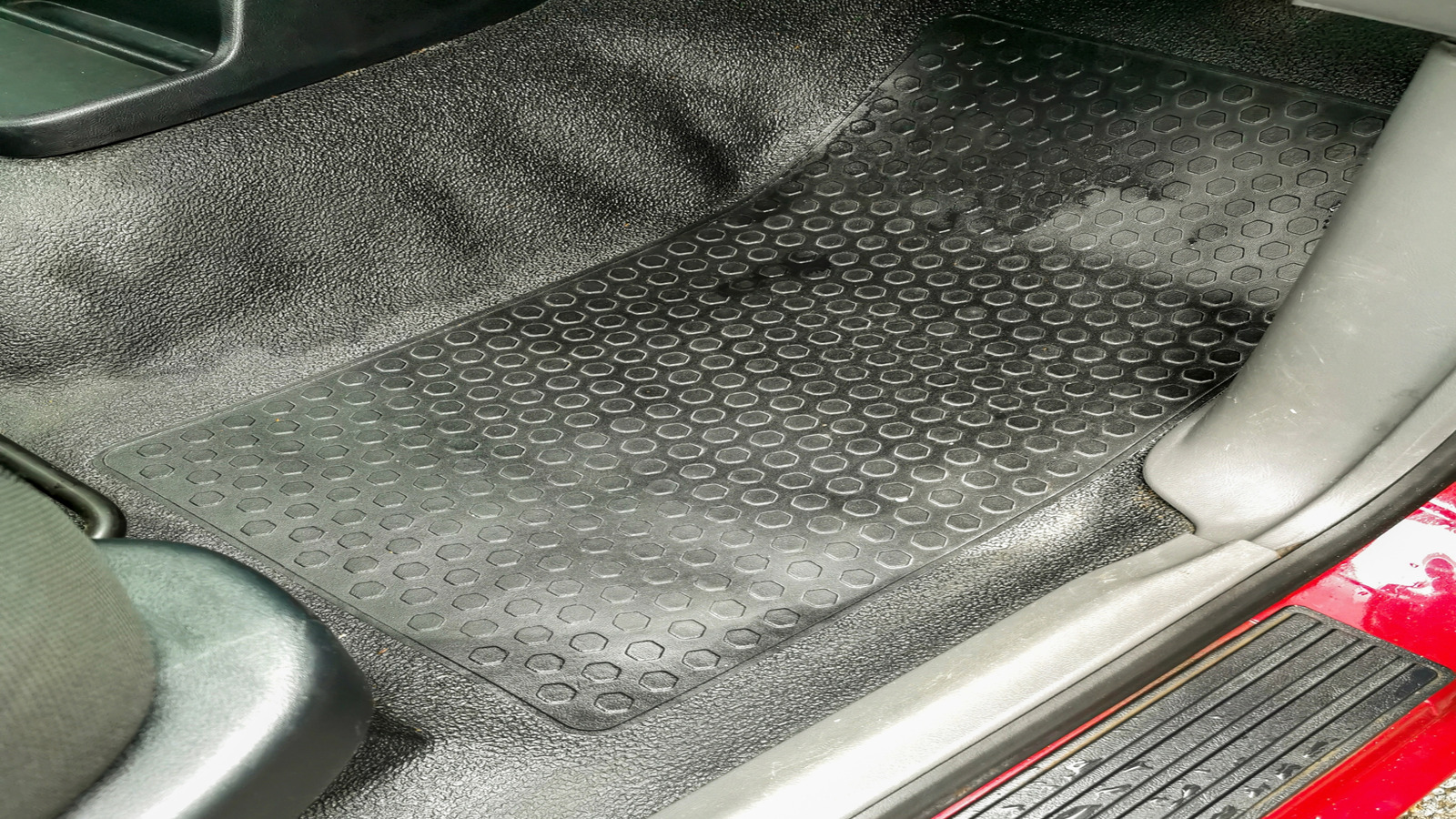By Pippa Bailey
Copyright newstatesman

Battle lines are drawn within the first five minutes of The Girlfriend, the six-part TV adaptation of Michelle Frances’s 2017 novel of the same name. Daniel, a tousled-haired pretty boy, assures his not-a-hair-out-of-place mother, Laura, that she’ll like his new girlfriend: “You remind me of her.”
“Or she reminds you of me,” Laura corrects, with a wink that doesn’t quite manage to make the comment feel light-hearted.
The Girlfriend is a book-club psychological thriller, but it has something of the Greek tragedy about it. It concerns, at its heart, a love triangle, between a mother, her son and his partner. There are incestuous undertones, along with some quite clear signalling – thanks to shadowy pre-title montages featuring broken glass, abandoned stilettos and pooling blood – that someone is going to get hurt.
The girlfriend concerned is Cherry, a red-haired woman fond of wearing red dresses (might she be… a scarlet woman?), who meets doctor and trust-fund kid Daniel (Laurie Davidson) when he wanders into the estate agents where she works, looking to drop a couple million on a penthouse. Cherry chose to work in property, she tells us, because she wants to “fix the housing crisis in the UK” – which is the second-funniest line in the entire show. (The first is when Daniel mumbles through a spoon held between his teeth that his cocktail set once belonged to Wallis Simpson, and Cherry replies: “I can’t hear you with that silver spoon in your mouth.”) In reality, she sells “panoramic micro-lofts” and gets passed over for promotion in favour of a perennially hungover but well-connected colleague.
A few episodes in, it’s hard to work out exactly how Cherry reminds Daniel of his mother: they have very little in common, except perhaps their strength of feeling for the same man and a certain ruthlessness. Cherry (Olivia Cooke, who has priors playing a Machiavellian woman in House of the Dragon) is vivid, spirited, unpredictable, with a come-out-swinging approach apparently informed by her working-class background, which she goes to great lengths (and depths of her overdraft) to hide from Daniel.
Laura (Robin Wright, star of the original streaming event House of Cards) is the curator of her own gallery; trimly dressed and tightly controlled, with a smile that doesn’t always reach her eyes. She and her husband, Howard, live in a towering yellow-brick townhouse, in an unconfirmed but clearly very expensive part of London. Its interiors are bland property porn: taupe, white marble, console tables decked with huge flower arrangements. Inexplicably, for two people whose lives otherwise seem entirely starched and conventional, they have an open marriage – a subplot that remains almost entirely unexplained and unexplored.
The women are at war from first meeting: Laura “accidentally” pours hot gravy in Cherry’s lap (on a dress, we later learn, in which she’s left the tag, hoping to return it); Cherry lets Laura’s indoor-only cat out of a window. Throughout, the perspective flips between the two, their turns announced in big red type across the screen, Killing Eve style. We see events from one point of view, stay with one woman long enough to feel sure she is the reliable narrator here; then it flips, rewinds, and we see the other side, the telling of the same events and exchanges subtly different. Each woman views the other’s relationship with Daniel as excessively physical: from Laura’s perspective we see Cherry locking eyes with her while kissing him; from Cherry’s, the mother-son relationship looks inappropriately close.
It’s a clever trick that serves to unmoor the viewer. Is Cherry a manipulative gold-digger who lied her way into Daniel’s heart, or is Laura paranoid and overly possessive, unable to accept that her son might genuinely love another woman? Which is the psychopath? This is the central question around which The Girlfriend twists and turns – at considerable, and at times ridiculous, speed. Occasionally I found myself longing for the whole thing to slow down; the suspicion and resentment between Laura and Cherry to be cranked up more gradually (and credibly).
In the end, The Girlfriend is entertainment of the Sirens variety: glossy, in thrall to the super-rich, briefly compelling, and ultimately disposable.
The GirlfriendAmazon Prime
[See also: Mitchell and Webb’s second look]



